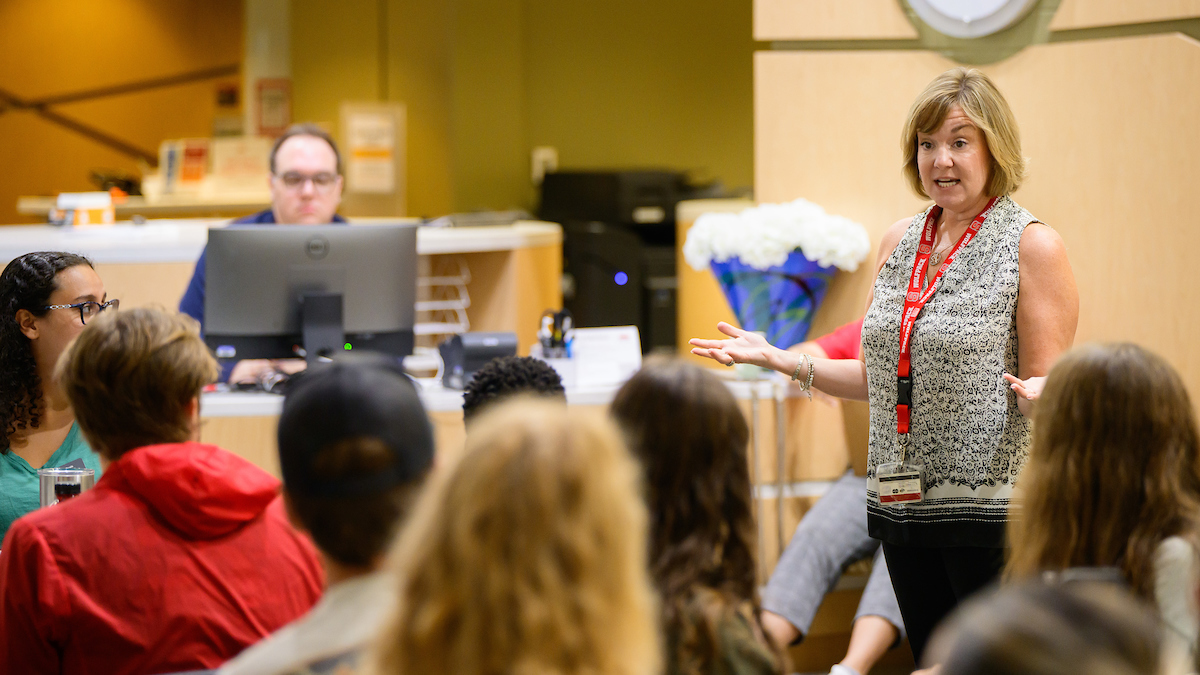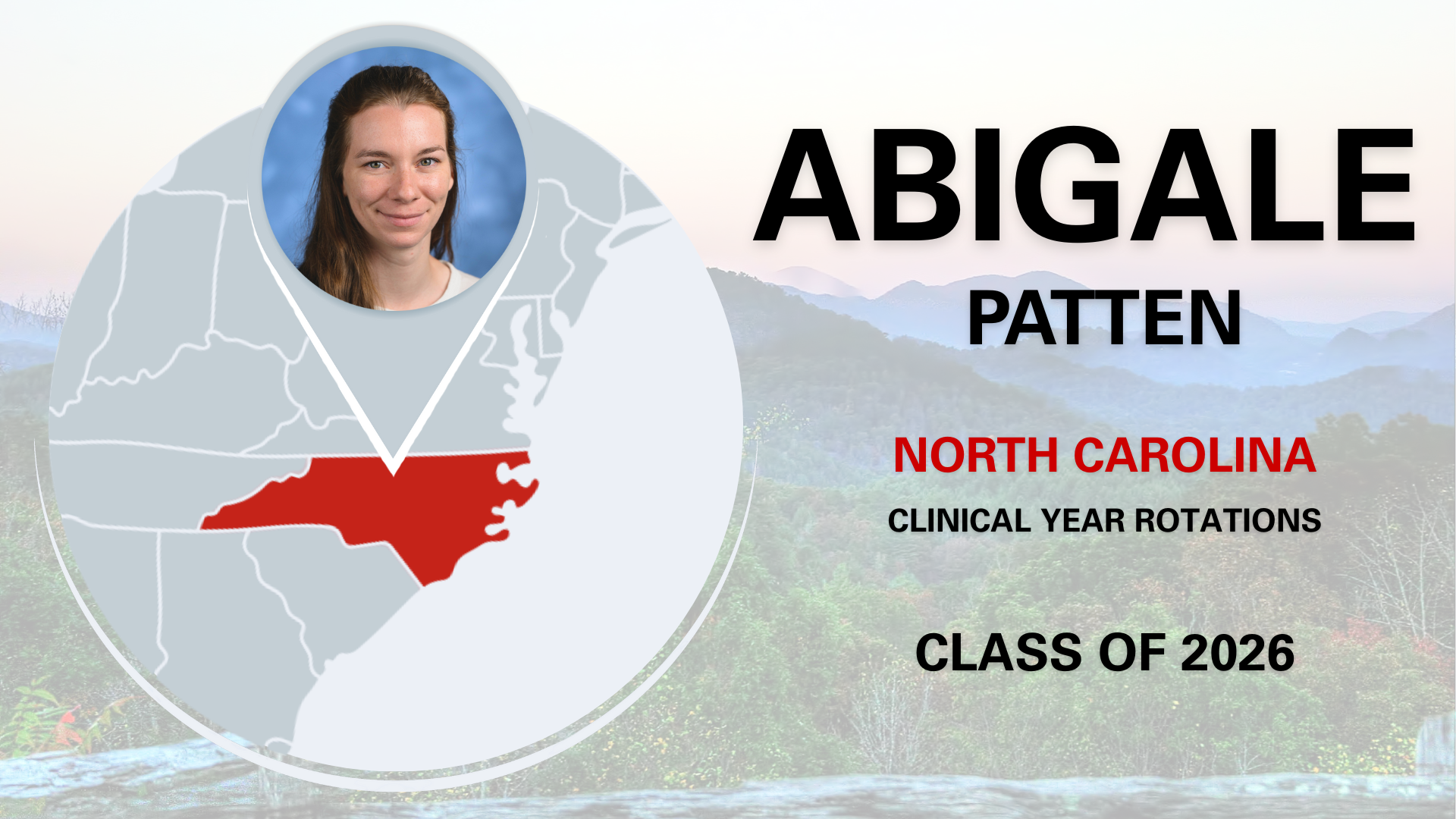Saluting the Student Veterans of the College of Veterinary Medicine
Two ‘vets squared,’ or veterans and future veterinarians, in NC State’s DVM Class of 2028 draw surprising connections between their military service and their civilian second careers.
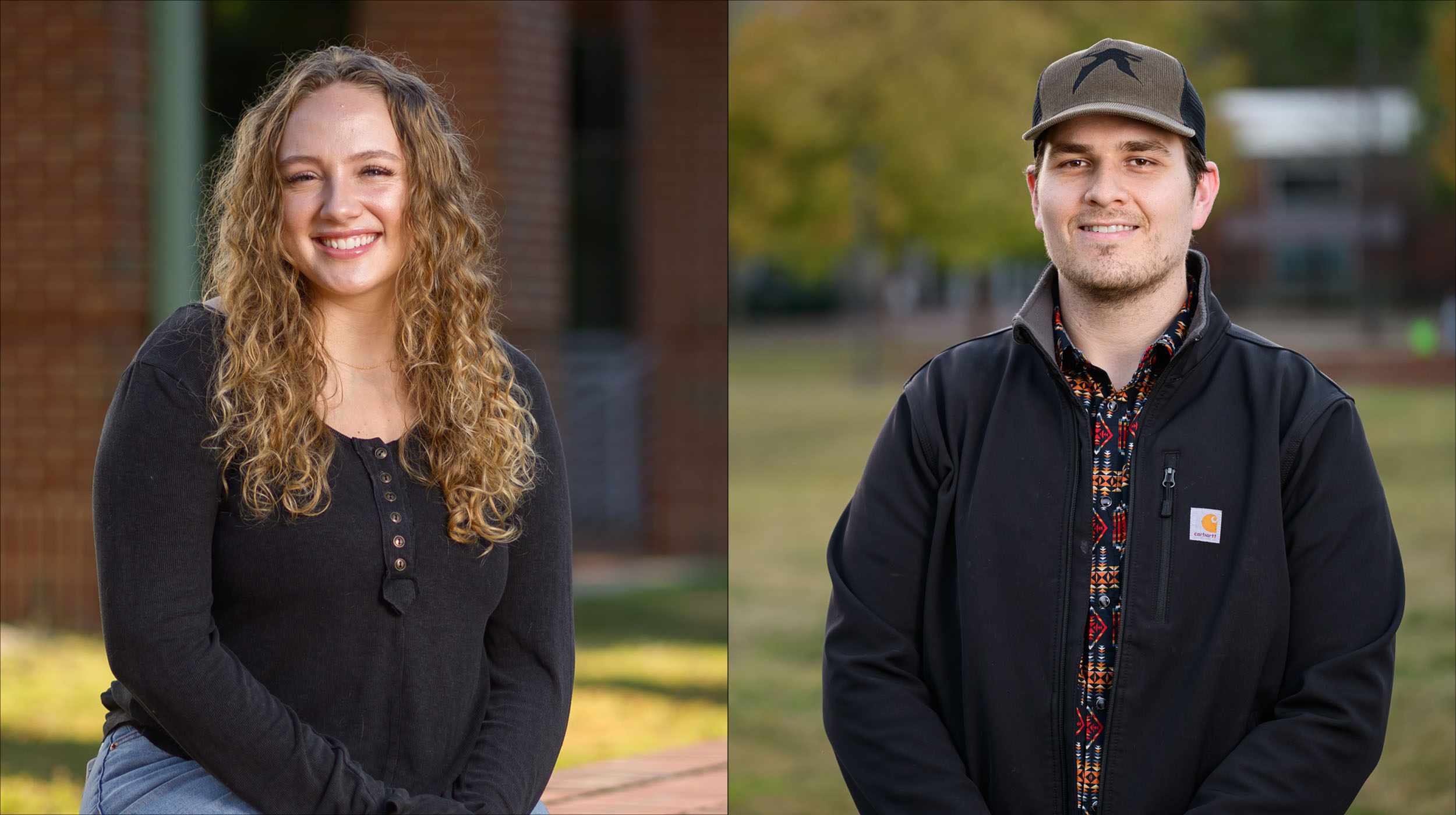
Nobody says veterinary school is easy, but compare it with deploying in West Africa and Central America with the Army, or protecting a Naval jet base and its occupants, and the stress of studying pales in comparison.
Several members of the NC State College of Veterinary Medicine’s student community have traded uniforms for scrubs as they pursue their DVM degrees after separating from military service. Others are currently enrolled in the Reserve or National Guard, and a few will join the Army, the only branch with a dedicated Veterinary Corps, after graduation through the Health Professions Scholarship Program.
At least 14 students enrolled in NC State’s DVM program identified themselves as veterans or service members when applying to the college, admissions data shows. Twenty-four more self-identified as military dependents. The college has more than 400 total students in the four-year DVM program.
The Class of 2028 represents the largest cohort of these veterinary veterans, with six students reporting prior military service. This shared history has led these trainees to create an informal support group to encourage one another, says Carson Cole, first-year student and Army veteran.
“Whenever we need help figuring out our benefits and things like that, we talk to each other, like, ‘Hey, did this work out for you? How’d you do this?’” he says. “It is nice to connect.”
For group members including Cole and Amy Sain, a Navy veteran, civilian student life is so far removed from military duty that it’s helpful to talk with others who can understand both experiences.
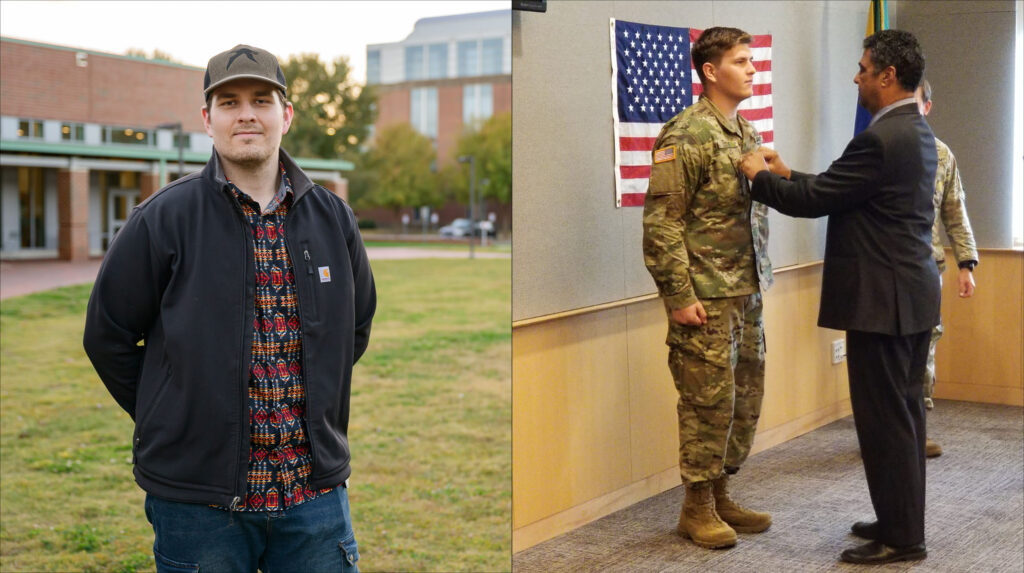
Cole, from Calgary, Canada, and The Colony, Texas, deployed around the world as a Civil Affairs medic and served for six years before separating in 2019 at the rank of sergeant. Stateside, he was stationed at Fort Cavazos near Killeen, Texas, and later Fort Liberty in Fayetteville, North Carolina.
His medic and paramedic work gave him a foundation in medicine and the ability to work well under pressure, which he says has benefitted him greatly in vet school. The Army also provided him with some veterinary training, and he was involved in anti-poaching initiatives in West Africa.
One experience in particular piqued his interest in science and lab work. While in an African host country, he worked with a team that radiocarbon-dated ivory tusks to determine whether they were antique and therefore legal to sell.
“I remember taking those tusk samples, seeing the scientists test them and thinking, ‘That is the coolest job,’” he says. “It was so cool that they can understand something at that level. And I think that really planted a seed, seeing those labs.”
That seed has since grown. After working various civilian jobs post-military, including a stint designing and building goat-enrichment centers, Cole is studying to become a clinical pathologist and also hopes to work with large animals in the field — this time alpacas instead of elephants.
Cole and Sain are attending NC State through the U.S. Department of Veterans Affairs’ Veteran Readiness and Employment program. According to Kyle Snyder, NC State assistant registrar and VA-certifying official, 26 students are attending the College of Veterinary Medicine using four types of VA education benefits.
Tuition coverage, along with a family history of naval service, is a big reason why Sain, of Lincolnton, North Carolina, enlisted in the Navy.
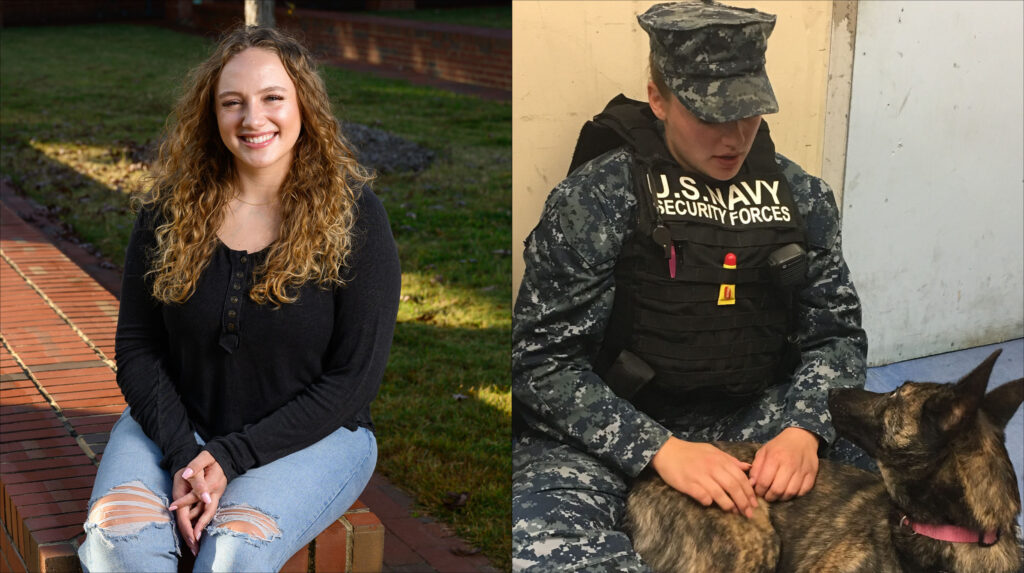
Sain served for four years as a master-at-arms, a naval military law enforcement official, safeguarding Naval Air Station Oceana in Virginia Beach until 2020. She was part of the Navy Reserve for another four years while attending college at Lenoir-Rhyne University and left the Navy this year at the rank of petty officer third class.
“I grew a lot as a person while I was in the military,” she says. “I changed so much from the time that I joined, when I was 18 years old, to when I got out. And I think it really helped me realize what I wanted.”
Sain says she always dreamed of being a veterinarian but never could envision that pathway for herself until the military provided her the financial support, discipline and structure that helped her realize her potential.
“Everything worked out the way it was supposed to, I believe, because this is truly what I always wanted to do,” says Sain, who aspires to go into mixed animal practice.
Though she was never a K-9 handler, Sain fondly remembers spending time around her colleagues’ K-9 dogs during patrol. In recent years, she began volunteering with a charity called the Garret Torney Foundation that helps provide service dogs to disabled veterans.
Both Sain and Cole say they carry their military service into their civilian lives in obvious and subtle ways.
Sain hasn’t yet kicked the habit of keeping her belongings in her left hand while walking around, just in case she has to salute someone with her right. Cole has to resist the urge to yell, ‘Sharps!’ while uncapping a needle in pre-clinical labs, because that was protocol on his paramedic team.
“My military experience changed me at my core,” Cole says. “Every decision I make has some kind of post-military signature.”
More than anything, the two say the military primed them on how to build efficient, communicative teams, strive for accuracy and recognize what effective leadership looks like. All of these skills come in handy in the fast-paced, collaborative environment of veterinary practice.
“I’m trying to leverage my veteran experience in every way possible,” Cole says. “I think everything you do relates to each other on some level. Finding out how those experiences talk, and what those conversations are, really can make you a better person, or at least push you toward your potential.”
- Categories:

